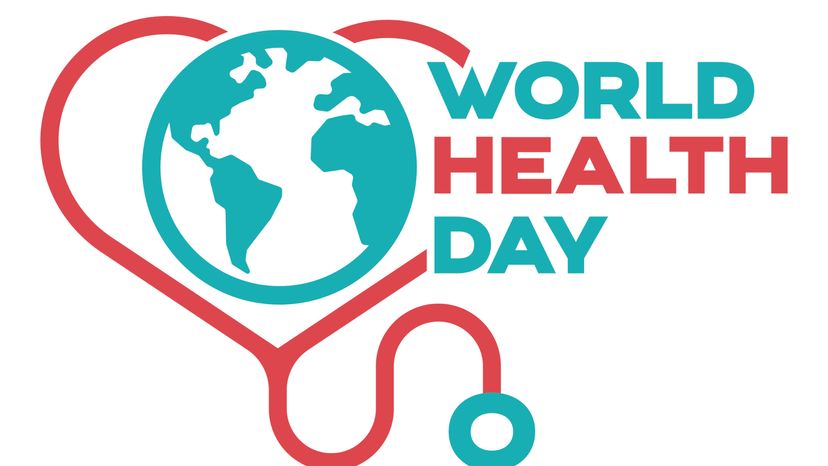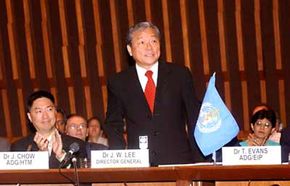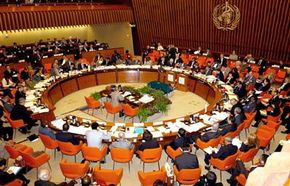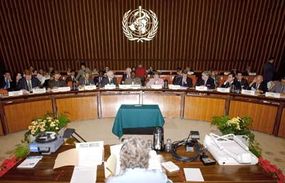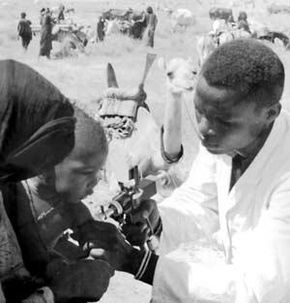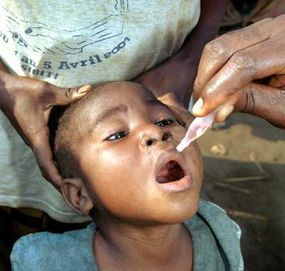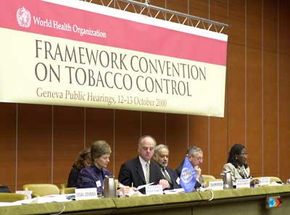While WHO's detractors support its focus on disease prevention and eradication, many argue that success has often been elusive because the organization is too bureaucratic and centralized to effectively and efficiently target funds and efforts. WHO has faced strong criticism for its purported inefficiency, and recent director-generals have pledged that improved efficiency and effectiveness will be top priorities.
Far more controversial than its focus on infectious disease prevention has been its efforts in the area of public health. Public health (a.k.a. social health, social medicine, and population health) proceeds from the assumption that society as a whole should attempt to boost the health of its population through:
- Accessible health care (doctors, nurses, hospitals, clinics, diagnostic equipment, medicines, etc.)
- Healthy environments (clean air, water, food, etc.)
- Good individual and collective lifestyle choices (eating fruits and vegetables, not smoking, getting exercise, etc.)
WHO's commitment to public health is enshrined in its constitution, which (as mentioned previously) recognizes that health is "not merely the absence of disease or infirmity" but also "a state of complete physical, mental and social well-being." But some read this broad definition as "totalitarian," and argue that it leads WHO to undertake activities in areas where it has no business.
A recent example of WHO working in areas that critics say should be beyond its scope is the unanimous adoption, at the 2003 World Health Assembly meeting, of a treaty aimed at curbing tobacco-related disease and death. The agreement, called Framework Convention on Tobacco Control, attempts to restrict tobacco advertising, sponsorship, and promotion; establish labeling controls; establish indoor "clear air" controls; and reduce tobacco smuggling.
Some critics decry what they see as WHO's totalitarian infringement into personal liberty and choice. They argue that people have a right to choose to engage in risky behaviors such as smoking if they so desire, and WHO has no right to legislate against them.
Interestingly, the same arguments have been made by critics of vaccination. When the practice was first spreading in England, an outspoken critic named George Gibbs compared state-legislated compulsory vaccination to "spies forcing their way into the family circle," and legislation was ultimately changed to allow "conscientious objectors" to refuse inoculation.
Ultimately, judgements on the role of the World Health Organization rest on personal viewpoints as to the role of global governments. Whether efforts in the field of public health are for the good of all or are Draconian is a matter of interpretation. But critics and supporters alike celebrate the eradication of smallpox and look forward eagerly to the elimination of other dangerous diseases. In this, at least, WHO has made a big difference in the world.
For more information on the World Health Organization and related topics, check out the link on the next page.
